Planning to visit our national parks and public lands? We’ve got you covered with some of the essential permits and reservations you’ll need.
America’s national parks and public lands are more popular than ever, making permits and reservations increasingly common. From timed entry reservations to backcountry permits, planning early can ensure unforgettable experiences in America’s great outdoors. We’ve selected a few of the hot tickets you’ll need for this year and when you need to get them. For more ideas and tips on reservations and tickets, check out our Insider’s Guide to Recreation.gov. Also, if your trip involves hotel stays, be sure to try out Parks Channel Member Travel. Free signup will give you access to discounts of up to 50%.
Acadia National Park (Maine): Sunrise on Cadillac Mountain
Experiencing sunrise on Cadillac Mountain in Acadia National Park is a life list item for many people. So many, in fact, you now need a vehicle reservation to drive on Cadillac Summit Road during peak season.
- What do I need? Park entrance pass and a timed entry vehicle reservation for Cadillac Summit Road (May – Oct)
- When can I get it? 30% of reservations are available on a rolling basis 90 days in advance; 70% are available at 10am (ET) two days in advance.
- Where can I get it? Recreation.gov

Apostle Islands National Lakeshore sits at the top of Wisconsin, where 21 wild islands scatter across the deep blue of Lake Superior. Known for its striking sea caves, red sandstone cliffs, and quiet beaches, it’s one of the Midwest’s best places for outdoor adventure. Kayak through wave-carved tunnels, sail between forested islands, or hike along scenic trails that overlook endless water.
When winter hits, the park transforms. The famous sea caves freeze into glittering ice formations that look straight out of a fantasy movie—worth the trip on their own. Wildlife is everywhere too: black bears wander the woods, bald eagles soar overhead, and migrating birds pass through in huge numbers.
History runs deep here, from ancient Native American settlements to 19th-century lighthouses and fishing camps. The Raspberry Island Lighthouse is a must-see, and boat tours are a great way to explore the islands’ hidden corners.
If you’re up for a real adventure, spend a night out on the islands. Camping here means traveling by boat or kayak and pitching a tent right on the shore—no cars, no crowds, just the sound of Lake Superior at your doorstep.
Appalachian Trail (New Hampshire): Backcountry Huts and Campsites
If you’re hitting the Appalachian Trail in New Hampshire and don’t want to wing it, the Appalachian Mountain Club (AMC) has you covered with several awesome backcountry huts you can reserve in advance. The Appalachian Mountain Club is the nation’s oldest mountain hut system.
If the huts are all booked, they also maintain several backcountry campsites, all offering tent platforms or shelters. Overnight fees are charged at some campsites, but no reservations are needed—it’s first-come, first-served—so plan to arrive early if you’re hiking during peak season.
- What do I need? A reservation for the huts; a fee for the campsites
- When can I get it? Check their website for season opening and closing dates and availability
- Where do I get it? Appalachian Mountain Club
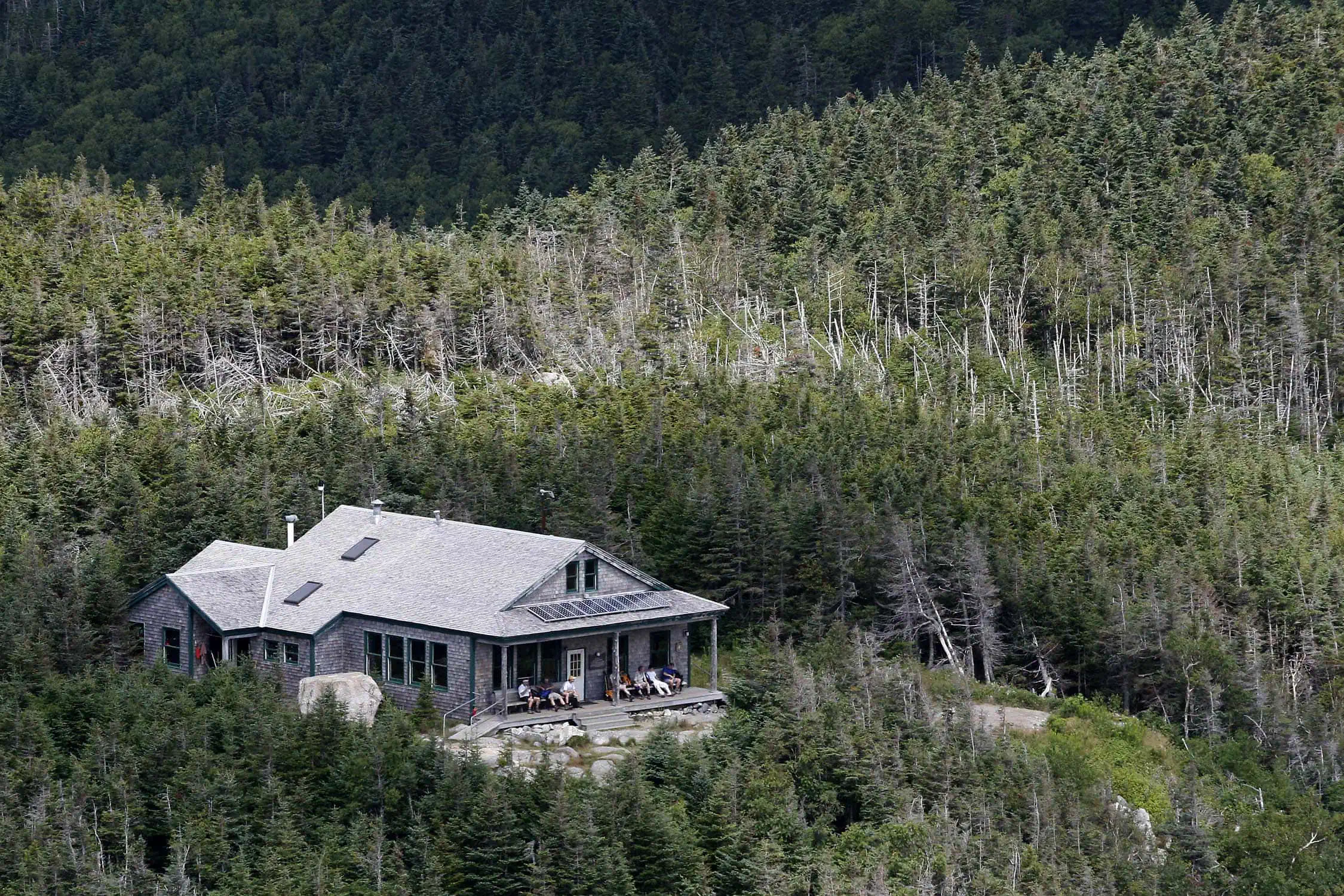
Watch Mitch Hemmer’s short film Woodland Babies about a New Hampshire native who thru-hiked the Appalachian Trail.
Bryce Canyon NP (Utah): Annual Astronomy Festival
Every summer, Bryce Canyon National Park hosts its Annual Astronomy Festival, celebrating the park’s famously dark skies. Visitors join park rangers and astronomers for telescope viewings, constellation tours, and family-friendly programs that reveal the wonders of the Milky Way above Bryce’s hoodoos.
Each night of the four-day festival, astrophotographers lead hands-on workshops designed for all skill levels, with a special focus on beginners. Participation is free but limited to 15 people per session, so early sign-up is encouraged. Classes begin at 9 p.m. with 90 minutes of guided instruction, followed by on-site astrophotography among the iconic hoodoos of the Bryce Amphitheater.
All festival activities are free to attend with regular park admission.
Carlsbad Caverns National Park (New Mexico): Timed Entry Reservation
Carlsbad Caverns National Park in southern New Mexico offers an awe-inspiring self-guided tour through the Big Room, one of the largest underground chambers in North America. Visitors can descend 750 feet via the natural entrance, following the same path early explorers once took, or take the elevator from the visitor center. Along the paved 1.25-mile trail, dramatic limestone formations like stalactites, stalagmites, and delicate draperies are illuminated to reveal their intricate beauty.
The park also offers above-ground hiking trails and wildlife viewing opportunities. A unique attraction is the summer bat flight program, where thousands of Brazilian free-tailed bats emerge from the cave at dusk.
Timed entry reservations are required to enter the cave, ensuring a comfortable flow of visitors and preserving the fragile environment. Reservations can be made online in advance and are valid for a specific date and entry time. Once inside, visitors can explore at their own pace, typically spending one to two hours underground. The experience is both otherworldly and humbling—a rare chance to wander through a hidden landscape millions of years in the making.
Watch Ari and Jessi of Trekers as they dive deep into Carlsbad Caverns
Dinosaur National Monument (Colorado, Utah): Green and Yampa Rivers
Explore the thrill of whitewater rafting at Dinosaur National Monument, where the Green River’s “Gates of Lodore” and the Yampa River’s 44-mile stretch from Deerlodge Park to Echo Park offer rugged canyons, breathtaking scenery and exhilarating rapids. Permits are required and during High Use Season only 300 permits for launches are issued.
- What do I need? A permit is required year-round. High Use Season for the Green River is May 12 – Sept 12. High Use Season for the Yampa River is May 12 – July 12.
- When can I get it? Lottery is open December 1 through January 31.
- Where do I get it? Enter the permit lottery here
Watch Megatherium Club’s “Dinosaur NM: How to Visit and What to See”
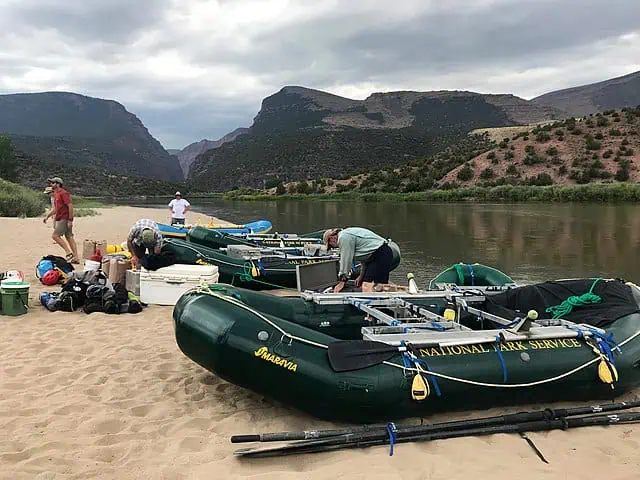
Everglades NP (Florida): Guided Tours
The Everglades is known for impressive biodiversity, but did you know its biodiversity is the result of being at the transition from tropical to temperate climates? This subtropical location is at the northern limit of the range for tropical species like the American crocodile, and at the southern limit of the range for temperate species like the American alligator.
Globally, intact ecosystems in transition zones like the Everglades are pretty rare these days, making the 1.5 million acres that Everglades National Park preserves a true gem in the National Park Service.
Want to see it, but don’t know where to start? You have choices! Guided tours from permitted guides are a great option and are available in addition to the regularly scheduled concession or ranger-led tours available in the park.
There are all kinds of tours: fishing, photography, paddling, birdwatching, and eco tours. Paddling in a canoe or kayak is a great way to explore the freshwater marsh, mangrove forests, the 10,000 Islands, and the open waters of Florida Bay. If you prefer to stay on land, there are five different bike trails and miles of hiking trails. Don’t forget bug spray—you’re going to need it.
Frank Church – River of No Return Wilderness (Idaho): Middle Fork of the Salmon River
“The River of No Return” earned its nickname because early travelers could only navigate it one-way in wooden scows, dismantling them for lumber at the journey’s end. Today it is one of the most coveted river permits in the rafting world.
The Middle Fork of the Salmon River originates in the Sawtooth Mountains near Stanley, Idaho, and flows 100 miles through the Frank Church–River of No Return Wilderness to join the main Salmon River. It features over 100 rapids, ranging from Class II to Class IV, making it a technical and exhilarating whitewater experience. The journey takes rafters through some of the most pristine wilderness in the U.S., with campsites along sandy beaches, riverbanks framed by dense forests, and spectacular canyon walls.
- What do I need? A permit is required year-round. Learn more here.
- When can I get it? Lottery is open until January 31.
- Where do I get it? Enter the permit lottery here
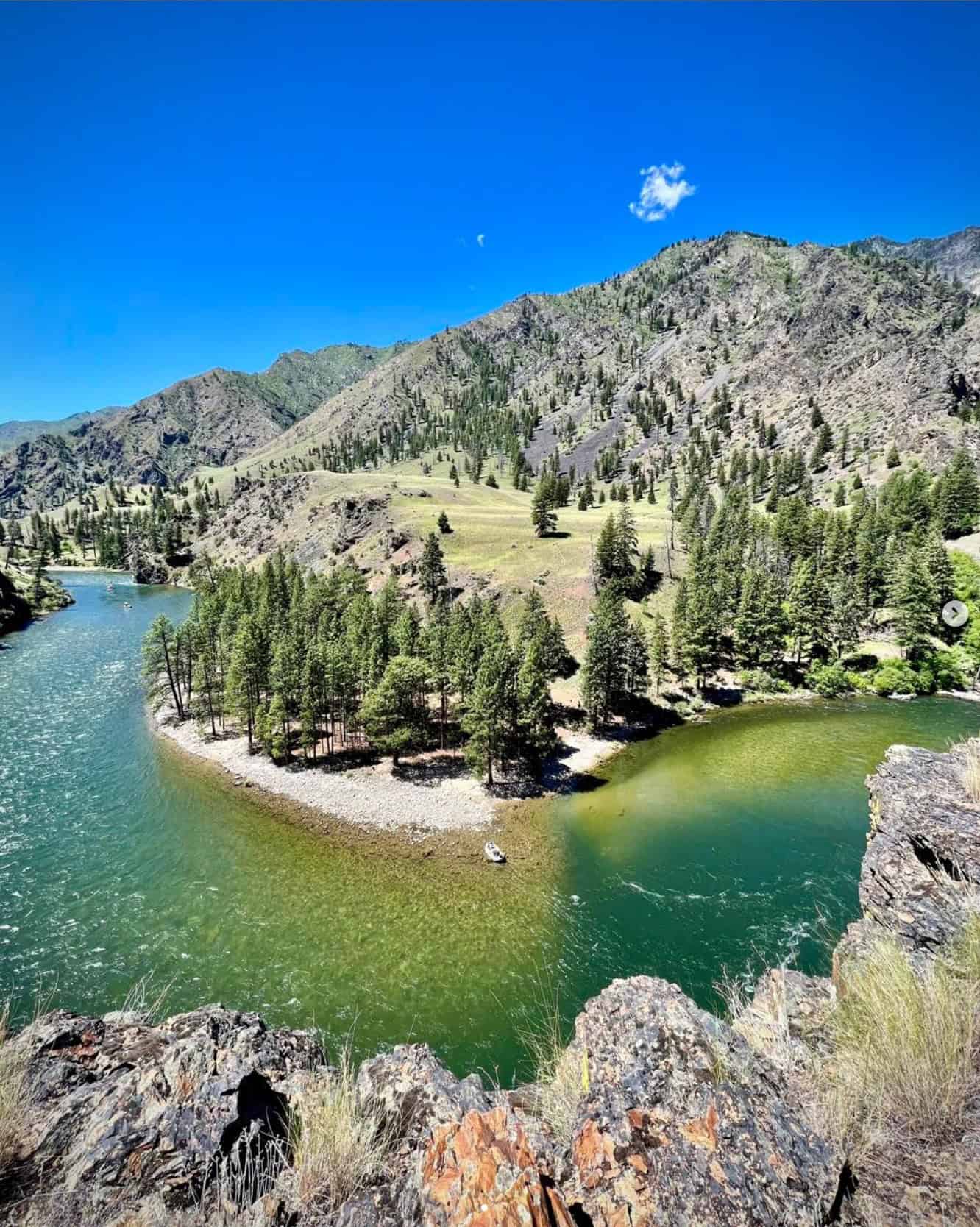
Glacier National Park (Montana): Going to the Sun Road
This 50-mile masterpiece cuts right through the heart of Glacier, crossing the Continental Divide and showcasing some of the most jaw-dropping views in the country. It’s more than just a scenic drive—it’s an experience.
- What do I need? A park entrance pass and a timed entry vehicle reservation
- When can I get it? Starting Feb. 12, 2025, vehicle reservations are released on a rolling daily basis. Starting June 12, 2025, next-day reservations become available.
- Where can I get it? Get the vehicle reservation at Recreation.gov.
- Read our blog post for more information.
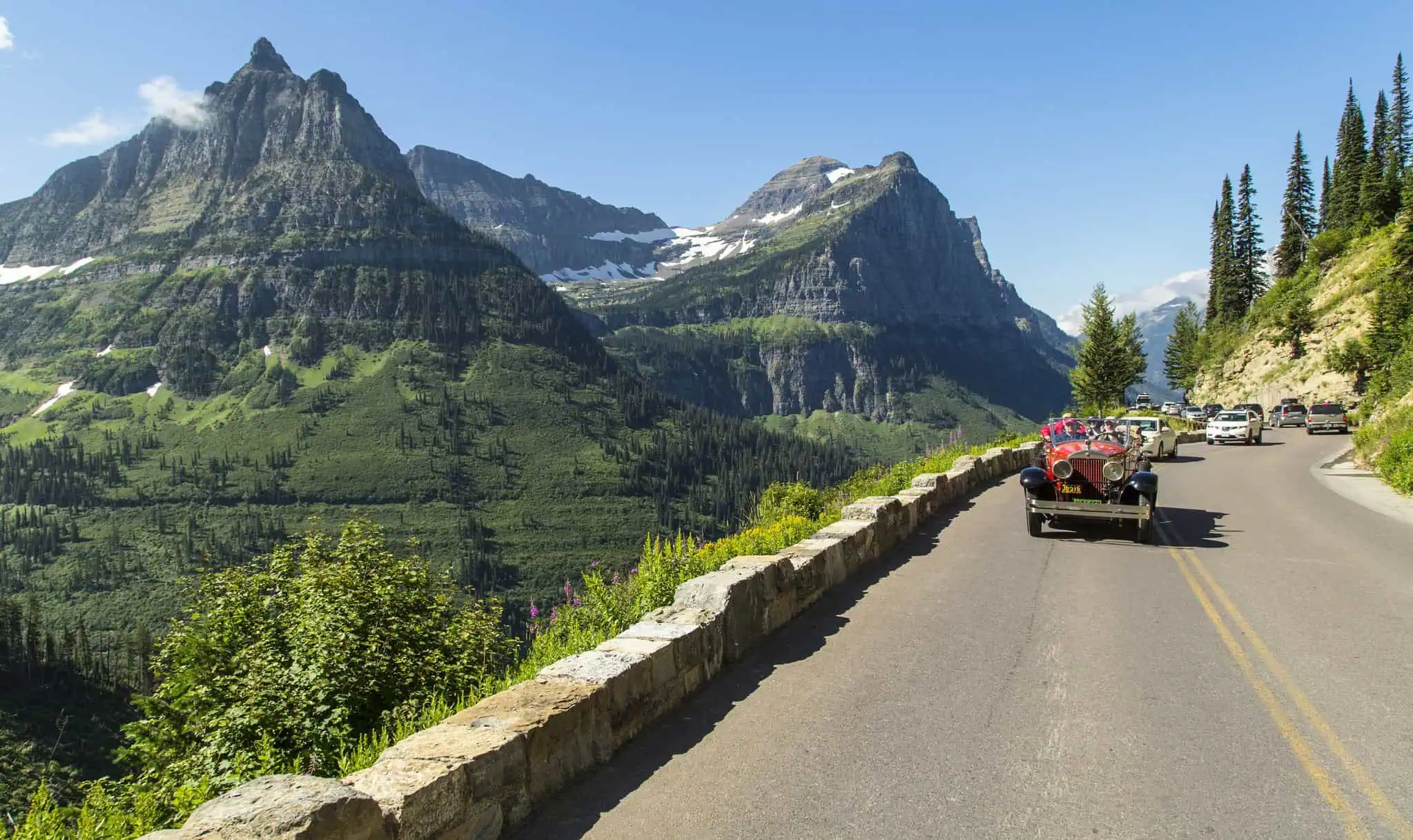
Watch Going-to-the-Sun Road: A fun and terrifying experience! from We’re in the Rockies
Grand Canyon National Park (Arizona): Rafting the Colorado River
Rafting the Grand Canyon is a once-in-a-lifetime adventure, offering a unique perspective on one of the world’s most iconic natural wonders.
- What do I need? For a professionally-guided trip, learn more here. To go on your own, you’ll need some friends, some gear, some know-how and a noncommercial permit.
- When can I get it? Lottery for self-guided permits opens February 1.
- Where can I get it? Learn more about the lottery here.
- Read our blog post for more information
- Watch Every Layer of the Grand Canyon, Explained and Grand Canyon 101 for First Time Visitors
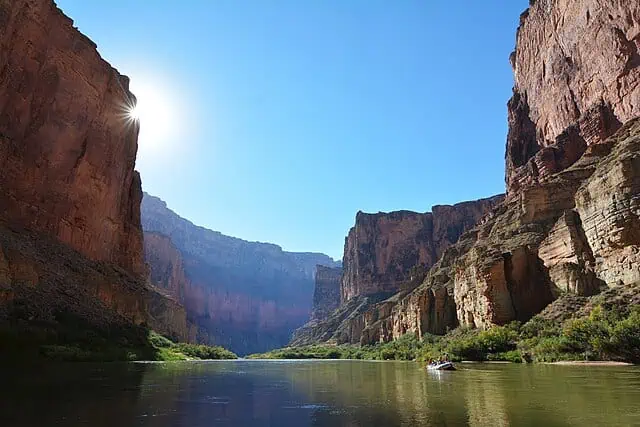
Grand Teton National Park (Wyoming): Teton Crest Trail
The Teton Crest Trail is a stunning 40-mile backpacking route offering panoramic views of the iconic Teton Range. Renowned for its breathtaking alpine scenery, it traverses rugged peaks, pristine meadows, and glacial lakes. The trail connects landmarks like Death Canyon Shelf, Hurricane Pass, and Cascade Canyon. A permit is required for camping, and the trail is best tackled in summer or early fall.
- What do I need? A park entrance pass and a backcountry camping permit
- When can I get it? Advanced reservations for backcountry camping permits for peak season (May 1–October 31) become available January 7
- Where can I get it? Recreation.gov
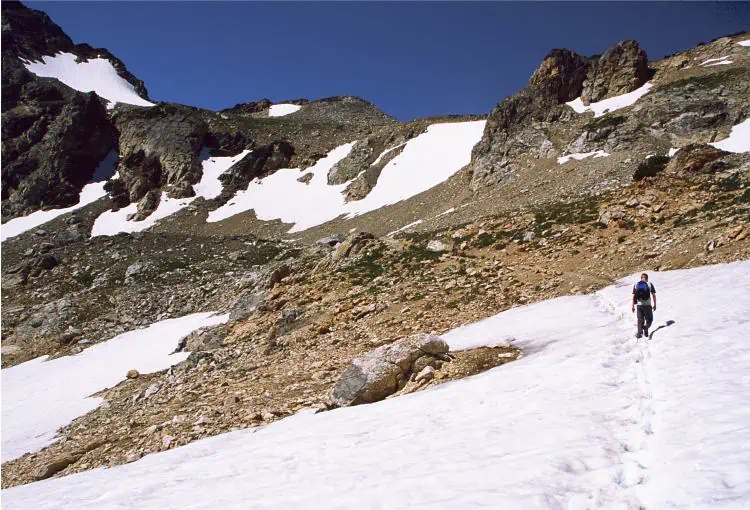
Check out some of the Parks Channel videos on where to go and what to do in Grand Teton NP. We’ve also got some short wildlife films made during the Jackson Wild Film Festival.
Great Smoky Mountains National Park (Tennessee): Synchronous Fireflies
Synchronous fireflies (Photinus carolinus) are one of 19 firefly species in the Great Smoky Mountains and among the few worldwide that synchronize their flashes. Their display occurs for a few weeks each year, typically in late May or early June in the Elkmont area of the park.
To manage crowds, the park requires a vehicle reservation via lottery for firefly viewing. Parking is limited, and during the 8-day event, Little River and Jakes Creek Trailheads close at night to all but permitted vehicles and folks registered at the Elmont Campground.
- What do I need? A vehicle reservation
- Where can I get it? By lottery at Recreation.gov
- When can I get it? The lottery opens at the end of April
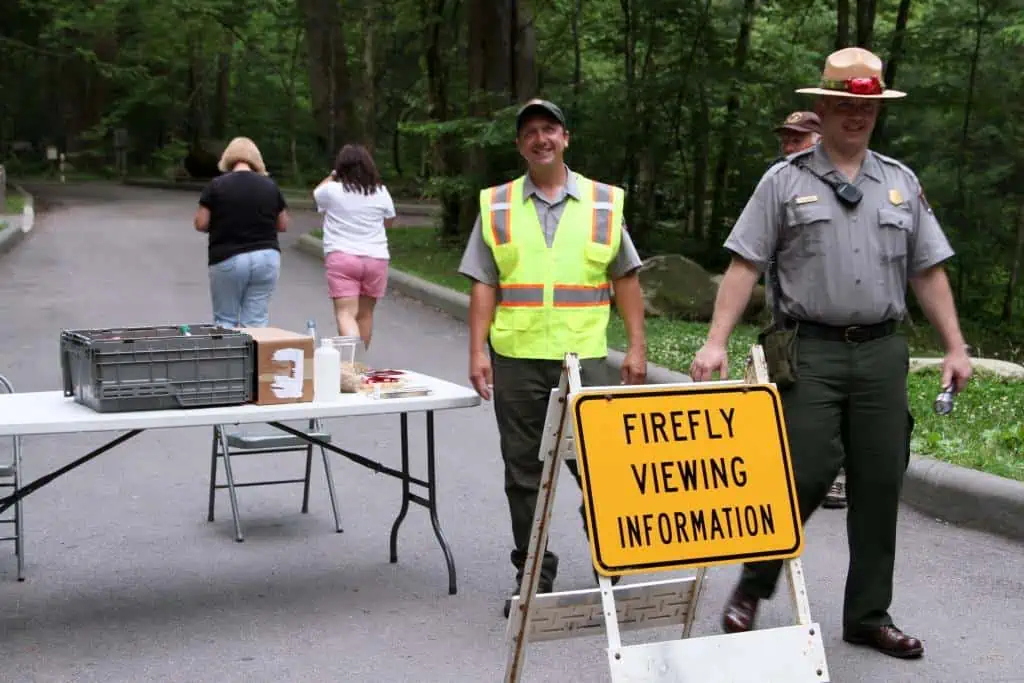
Watch Megatherium Club’s Great Smoky Mountains NP: How to Visit & What to See
Haleakalā National Park (Hawaii): Haleakalā Sunrise
Few experiences compare to watching the sun ascend above a sea of clouds, bathing the rugged volcanic terrain in shades of orange, pink, and gold.
- What do I need? A park entrance pass and a vehicle reservation
- When can I get it? Available on a rolling basis, 60 days in advance. A secondary release is available two days in advance.
- Where can I get it? Recreation.gov
- Read our blog post for more information
- Watch The Best Sunrise in Hawaii is Worth the Reservation
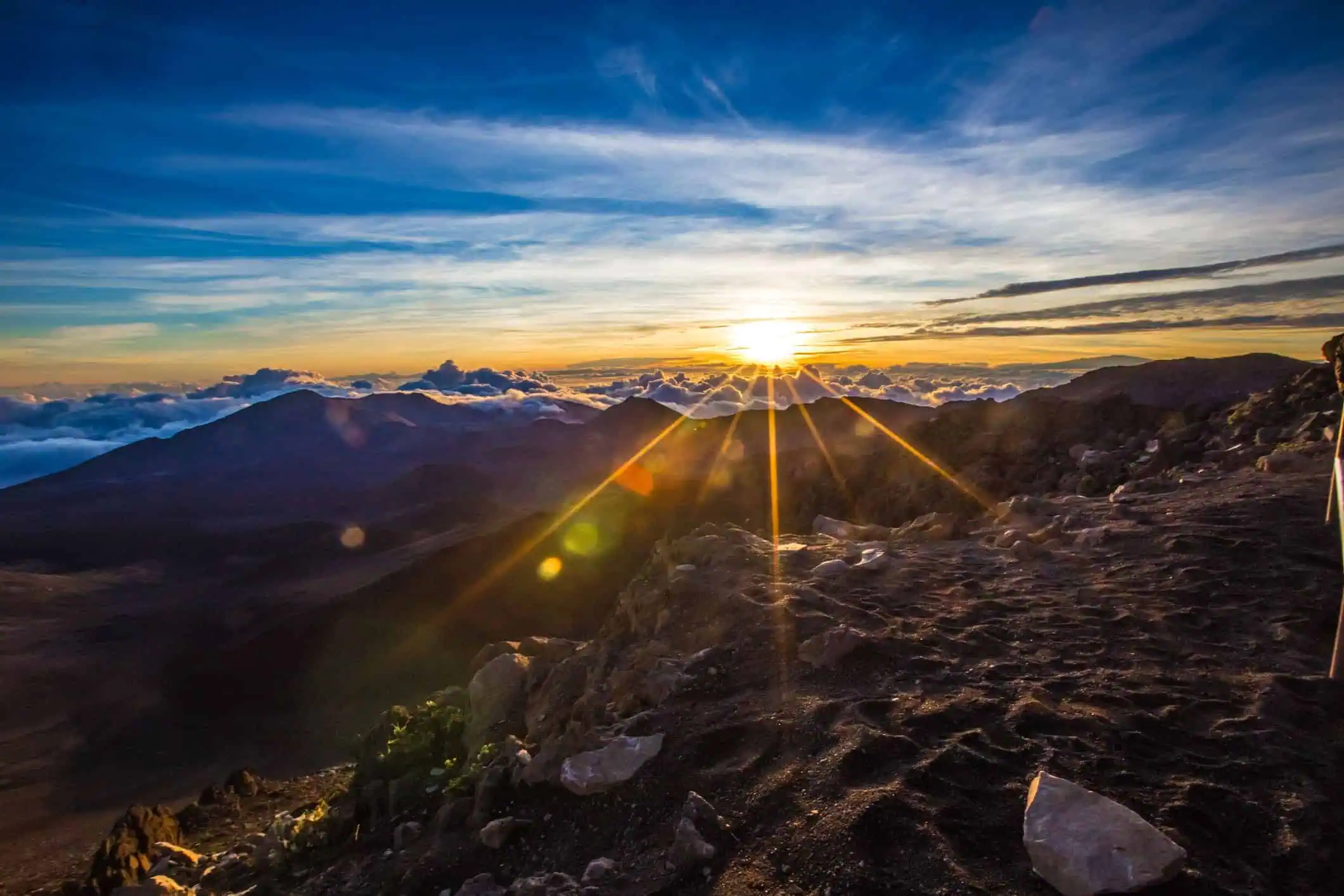
Hells Canyon National Recreation Area (Idaho): Snake River
The mighty Snake River cuts through Hells Canyon, the deepest river gorge in North America, forming the rugged border between Idaho and Oregon. This incredible landscape is part of the Hells Canyon National Recreation Area, managed by the Wallowa-Whitman National Forest, and includes the 215,000-acre Hells Canyon Wilderness. Paddle the Wild section’s thrilling Class II-V rapids or float the scenic, untouched stretches. Start your adventure at Hells Canyon Creek Recreation Site, but plan ahead—permits are required for float trips in this unforgettable destination.
- What do I need? A river permit and a reservation during primary season (May 23 – Sept 10)
- When can I get it? Primary season lottery closes January 31
- Where can I get it? Recreation.gov
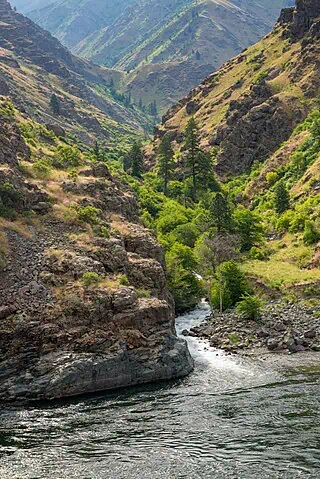
Katmai National Park (Alaska): Brooks Lodge
Deep in the Katmai Wilderness, and accessible only via float plane, Brooks Lodge overlooks the world famous Brooks River in the heart of Katmai National Park. Originally conceived as a fishing camp, the lodge has been in operation since 1950.
- What do I need? Entrance to the park is free, but you need a reservation to stay in the lodge
- When can I get it? A lottery for reservations is held each December (2025 lottery is for 2027 reservations)
- Where can I get it? katmailand.com
- Watch Amazing Katmai and learn more
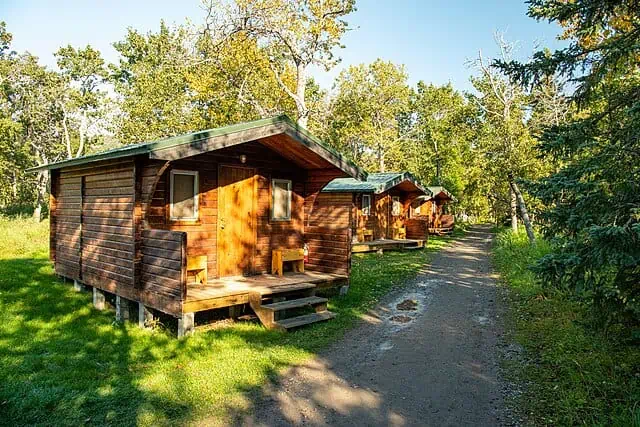
Mesa Verde NP (Colorado): Cliff Dwelling Tours
Mesa Verde National Park is home to remarkable cliff dwellings that offer a glimpse into the ancient lives of the Ancestral Pueblo people. These architectural marvels, perched on canyon walls, are a testament to their engineering and artistic achievements.
Cliff Palace: As the largest cliff dwelling in North America, Cliff Palace was once home to over 100 people. On a ranger-led tour, you’ll descend uneven stone steps, climb four ladders, and explore this impressive site. The tour lasts 45 minutes and covers a quarter-mile distance.
Balcony House: This adventurous tour involves scaling cliff faces via tall ladders, crawling through narrow tunnels, and retracing the steps of Ancestral Pueblo residents. The one-hour tour includes a 32-foot ladder, an 18-inch wide tunnel, and a 60-foot open cliff face.
Backcountry Tours: These special tours take you into the park’s lesser-seen cliff dwellings. Rangers guide you through the history and culture of the Ancestral Pueblo people, offering a unique perspective on Mesa Verde’s hidden treasures.
To explore these fascinating cliff dwellings, make reservations at Recreation.gov or call 1-877-444-6777. Remember, demand is high, so secure your spot early!
Paria Canyon / Vermilion Cliffs Wilderness (Arizona): The Wave
The Wave is a stunning sandstone formation in northern Arizona renowned for its striking, wave-like patterns and vivid colors. Access to this natural wonder—located in the Coyote Buttes North area of the Paria Canyon / Vermilion Cliffs Wilderness—requires a permit due to its fragile environment and limited daily visitors.
The hike to the Wave is a physically demanding 6.4 mile round-trip hike. Permit-holders need to be in good physical condition and be comfortable navigating in undeveloped areas. The eight-mile drive to the trailhead is unpaved, and if it rains, you’ll need a four-wheel-drive vehicle. This wilderness area does not contain any developed trails or facilities. Permit-holders are given a route description, which includes a route map, photo guide and GPS coordinates along the suggested route to the Wave.
You can apply for a permit through the Bureau of Land Management (BLM) online lottery system at Recreation.gov. There are two lotteries: one four months in advance and another for next-day permits. The process has multiple steps and deadlines to be aware of, so do your homework!
Rocky Mountain National Park (Colorado): Timed Entry Vehicle Permits
Rocky Mountain National Park is a breathtaking expanse of wilderness nestled in the heart of the Colorado Rockies. Spanning over 415 square miles, it boasts towering peaks, alpine meadows, and pristine lakes.
Visitors can explore over 350 miles of trails, winding through diverse ecosystems teeming with wildlife like elk, mule deer, and bighorn sheep.
With iconic landmarks such as Trail Ridge Road and Longs Peak, this park offers unparalleled opportunities for hiking, camping, and awe-inspiring scenic drives.
Planning for summer and fall trips to Rocky?
From mid-May to mid-October, timed entry vehicle permits will be required to enter Rocky Mountain National Park during certain hours of the day. There will be two different options to choose from: Timed Entry or Timed Entry + which includes the Bear Lake Road Corridor.
Timed entry permits for May – June will be available to reserve at Recreation.gov beginning at 8 a.m. MDT on May 1.
For more detailed information and a list of frequently asked questions and answers, visit NPS.gov.
Learn more about Rocky Mountain NP from some of our creators.
Rocky Mountain National Park (Colorado): Wilderness Overnight Backpacking Permits
Planning to go backpacking in Rocky Mountain National Park? A wilderness camping permit is required year-round. Reservations for all Summer Wilderness Overnight Backpacking Permits go on sale through Recreation.gov at 8 a.m. MST on Friday, March 1.
Your permit must be picked up at the Headquarters Wilderness Office (beside the Beaver Meadows Visitor Center on Highway 36 west of Estes Park, CO) or at the Kawuneeche Visitor Center (Highway 34, north of Grand Lake, CO). To get important tips and begin planning for your trip, visit the park’s Wilderness Overnight Backpacking page.
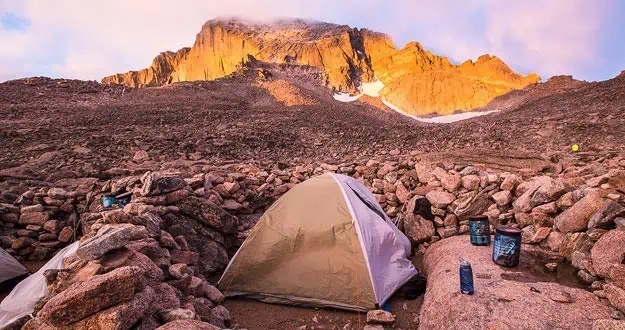
Follow Adam and Kathryn of Adventures of A+K on their Hike to Sky Pond. And always remember to Leave No Trace.
Sequoia National Park and Inyo National Forest (California): Climbing Mt. Whitney
Mt. Whitney is the tallest mountain in the “lower 48” states and the most frequently climbed mountain peak in the Sierra Nevada. Situated on the boundary of Sequoia National Park and Inyo National Forest, it offers hikers breathtaking views and a challenging climb, drawing adventurers from around the world.
Most people start their hike from the east side, staying within Inyo National Forest. Because it’s such a popular climb, there’s a permit system in place to protect the backcountry. Whether you’re just doing a day hike or planning a longer trip, you’ll need a permit to enter the Mt. Whitney zone.
If you’re starting from Whitney Portal on the east side, you’ll need to get a permit from the Inyo National Forest. On the other hand, if you begin in Sequoia National Park and head over from the west, you should get a wilderness permit from Sequoia & Kings Canyon National Parks.
The most traveled route is a 10.7-mile trail from Whitney Portal, which is about 13 miles west of Lone Pine. The trail starts at 8,360 feet and climbs to the summit at 14,494 feet. In the spring and early summer, you’ll need ice axes and crampons, but from mid-July to early October, you generally won’t need technical climbing gear.
There are other, less crowded routes too. For example, the High Sierra Trail starts in Giant Forest on the west side of Sequoia National Park and covers about 60 miles one-way. This trek takes at least six days one way or ten days for a round trip.
Shenandoah NP (Virginia): Climb Old Rag Mountain
Shenandoah National Park spans 200,000 acres of breathtaking wilderness—rolling mountains, serene forests and tranquil hollows. It’s a paradise for hikers.
The crown jewel of the park is Old Rag Mountain, the most popular—and most challenging—hike in Shenandoah.
This 9-mile loop climbs more than 2,400 feet, includes a strenuous rock scramble and typically takes seven to eight hours to complete. Nearly 80,000 people visit the trailhead of Old Rag every year—including many students from nearby University of Virginia, where it appears on the before-you-graduate bucket list.
From March 1 to November 30, visitors to Old Rag Mountain need a day-use ticket in addition to a Park entrance pass. Learn more and get your day-use ticket here and your park pass here.
Visit our Shenandoah Park page to see videos and learn more about the park.
If you want to try some of the other hiking trails in Shenandoah, read about Kevin Morgan’s Shenandoah 52 hiking challenge, and watch his videos on the 52 hikes.
Superior National Forest (Minnesota): Boundary Waters Canoe Area Wilderness
Boundary Waters Canoe Area Wilderness (BWCAW) in northeastern Minnesota lets you canoe, portage, and camp in the spirit of French Voyageurs from 200 years ago. Stretching over a million acres within the Superior National Forest—and adjacent to Voyageurs National Park—this is a place to truly get away from it all.
- What do I need? A permit is required for all trips into the BWCAW. For overnight paddling trips during quota season—May 1 to September 30—you need to reserve one online. Day-use permits don’t require reservations.
- When can I get it? January 29th at 9:00am CST for all entry points
- Where can I get it? Recreation.gov
- Read our blog post for more information
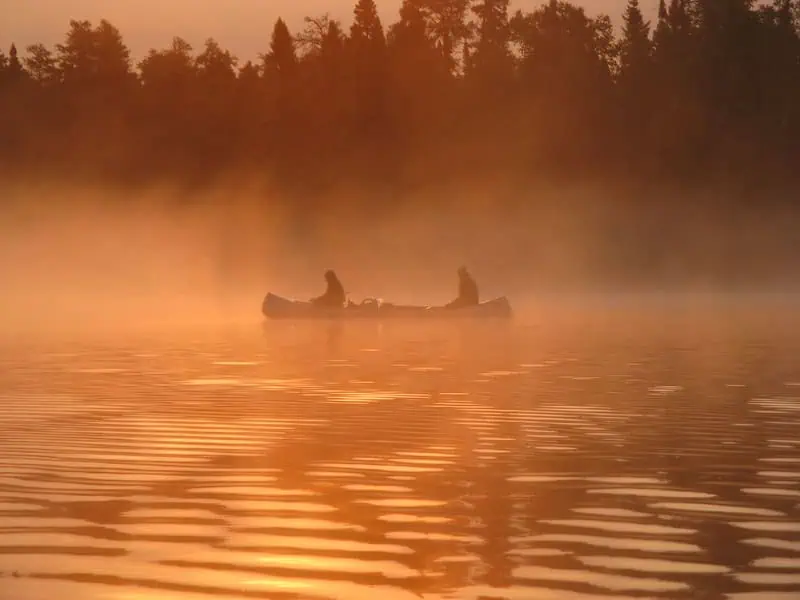
Voyageurs National Park (Minnesota): Houseboating
Nearly 200 years ago, voyageurs paddled birch bark canoes loaded with animal pelts and trade goods through what is now Voyageurs National Park in Minnesota, heading towards Lake Athabasca, Canada.
Today, you can trace their route across the park’s five major lakes —Kabetogama, Namakan, Sand Point, Crane, and Rainy Lake—by motorboat, canoe, or kayak. Spanning over 219,000 acres, Voyageurs is a true water-based wilderness where the best way to explore is to leave your car behind and take to the water.
It’s a haven for wildlife enthusiasts, with deer, moose, otters, bald eagles, black bears, and white pelicans making it a paradise for photographers. You can spend your days fishing, swimming, bird watching, and berry picking, or simply drifting amid the pine-lined shores and soaking in the serene beauty as you float along.
For the ultimate experience, rent a houseboat and make the lakes your backyard. With cozy bunks, kitchens, and sunset decks, it’s comfort with a view. There’s no entrance fee for Voyageurs, but you’ll need a permit for overnight houseboating—issued per boat, per night. There’s no limit to how many can explore at once, so go ahead and plan your adventure. Bon voyage!
Yosemite National Park (California): Half Dome Cables Route
For adventurers and climbers, Half Dome is a revered challenge. The popular Cables Route requires physical endurance, mental fortitude, and a healthy respect for the mountain.
- What do I need? A day-hiker permit or a backpacker/wilderness permit
- When can I get it? Preseason lottery for day-hiker permits is March 1-31; Daily lottery is ongoing
- Where can I get it? Day hiker lottery at Recreation.gov; backpacker/wilderness lottery at Recreation.gov
- Read our blog post for more information
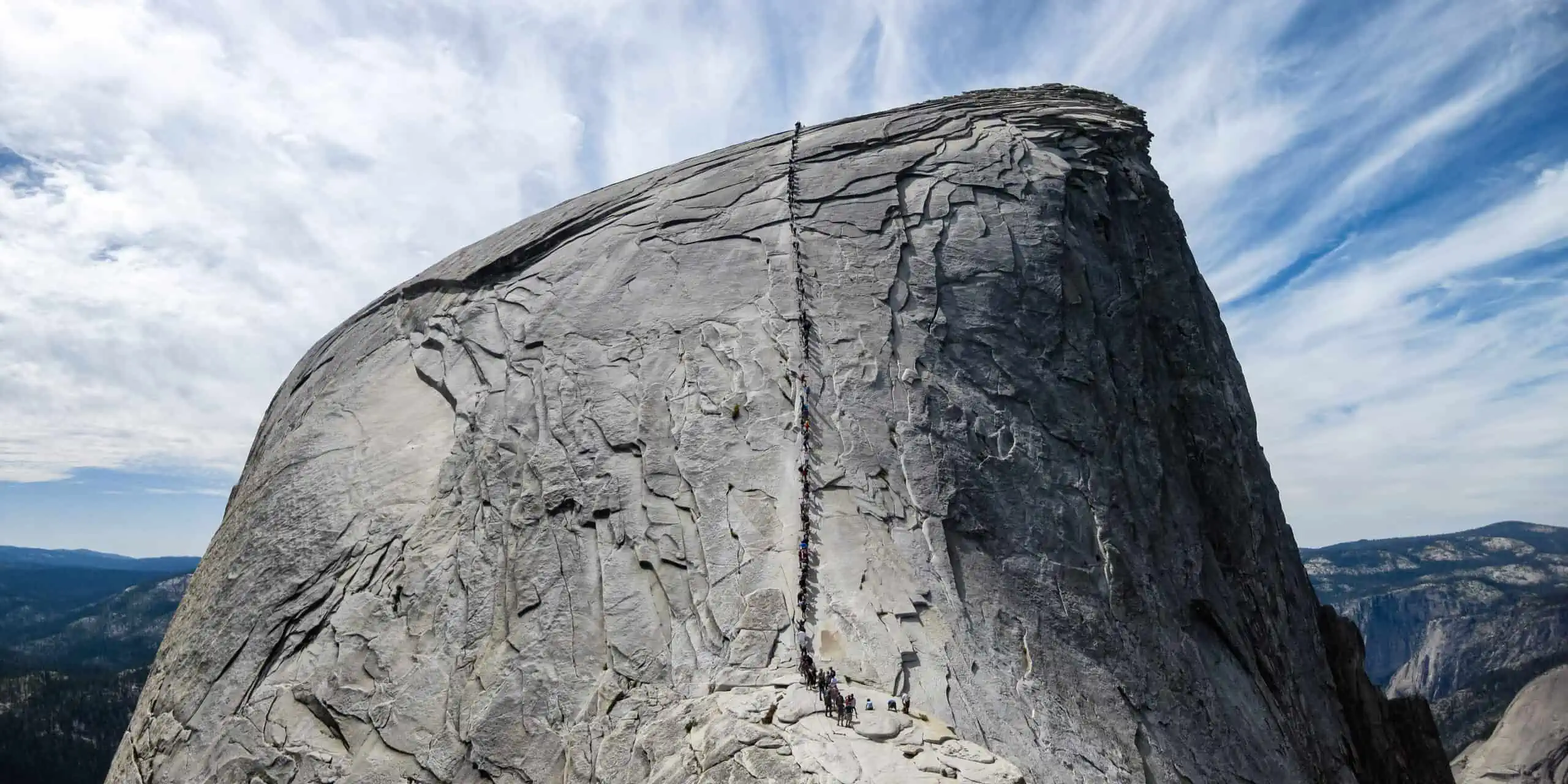
Watch Alice Ford’s Solo Winter Adventures in Yosemite
Yosemite National Park (California): High Sierra Camps
Yosemite High Sierra Camps offer a lightweight backpacking experience with rustic accommodations and meals along a scenic loop trail, making backcountry exploration accessible and unforgettable.
- What do I need? A park entrance pass and a reservation
- When can I get it? Seasonal lottery held November 1-30 every year.
- Where can I get it? travelyosemite.com
- Read more about Yosemite: Beyond the Valley
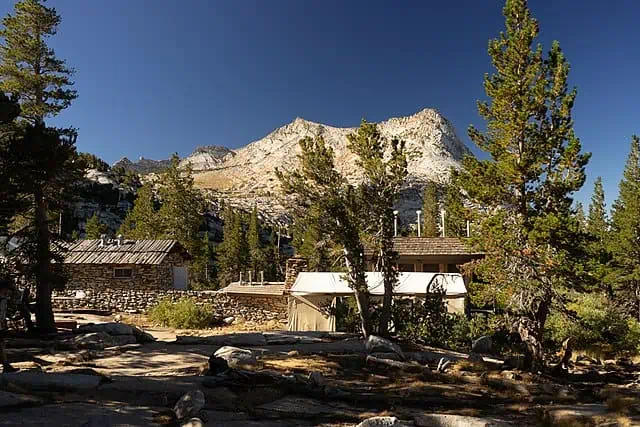
Zion National Park (Utah): Angels Landing
Angels Landing in Zion National Park is one of the most iconic hikes in the National Park system. With stunning views and a thrilling ascent, it’s an unforgettable experience.
- What do I need? A park entrance pass and a permit
- When can I get it? Seasonal lottery held four times a year, Spring lottery is Jan 1-20; Summer lottery is Apr 1-20; Fall lottery is Jul 1-20; Winter lottery is Oct 1-20.
- Where can I get it? Recreation.gov
- Read our blog post for more information
- Watch 10 Safety Tips for Hiking Angels Landing
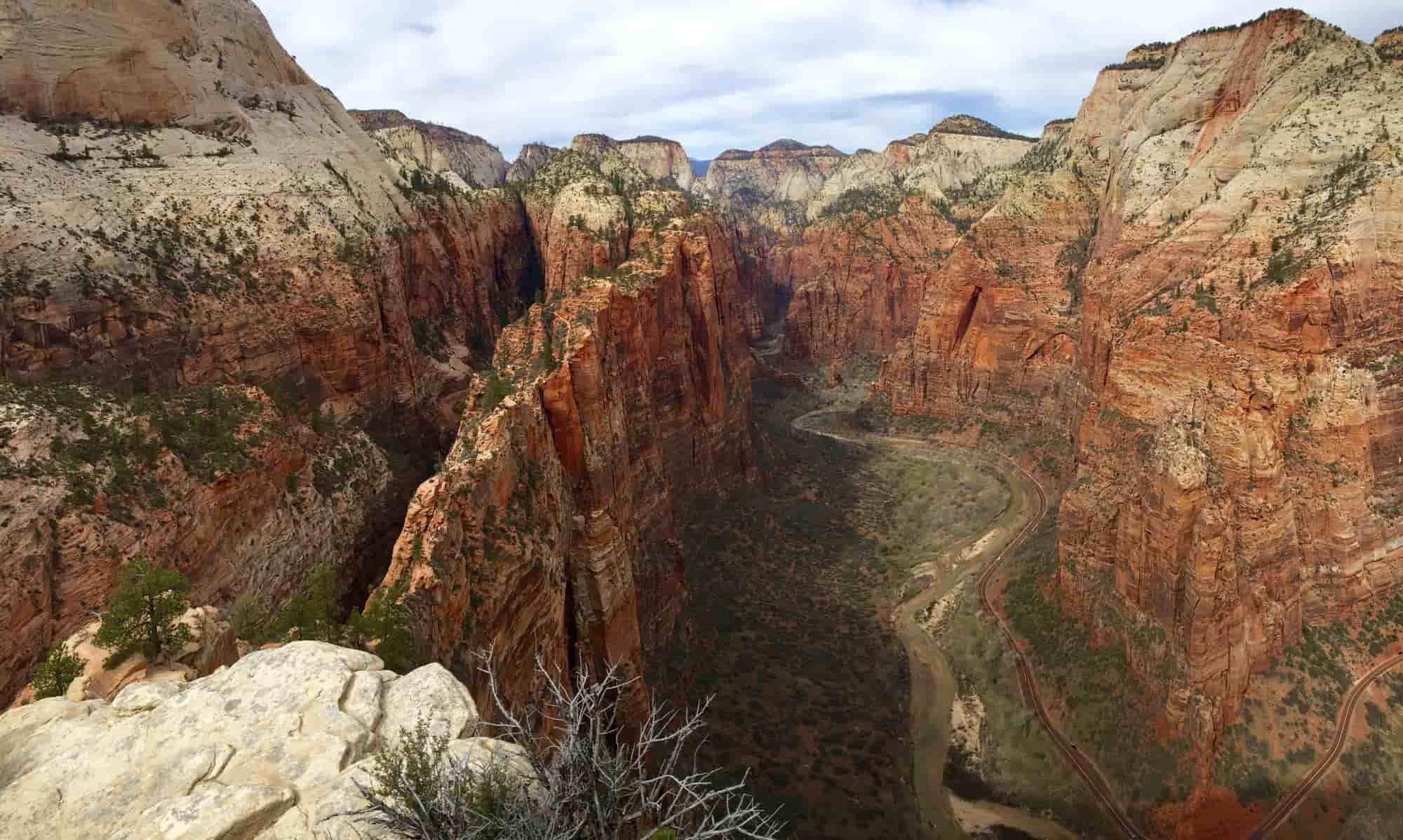
Zion National Park (Utah): Hike The Narrows Top-Down
Hiking The Narrows top-down offers a unique and less-crowded perspective of one of the most iconic slot canyons in the world. This 16-mile hike follows the Virgin River from Chamberlain’s Ranch down to the Temple of Sinawava and requires a wilderness permit. Unlike the popular bottom-up hike, which starts from the Temple and allows hikers to go only as far as Big Spring without a permit, the top-down route gives access to the entire canyon’s length, including remote sections not seen from the bottom.
The hike typically takes 10-14 hours for experienced hikers, or it can be done as an overnight backpacking trip. Starting at Chamberlain’s Ranch, the upper Narrows’ sections are tranquil and narrow, with sheer canyon walls that soar hundreds of feet overhead. The route involves river crossings, wading, and at times swimming through deeper sections.
A wilderness permit is required for hiking The Narrows from the top down. Permits are issued on a first-come, first-served basis.
Note: you do not need a ticket, permit or reservation to enter Zion, ride the shuttle, or hike The Narrows going upstream.
Top photo of Lake McDonald in Glacier National Park, Montana, by iStock

